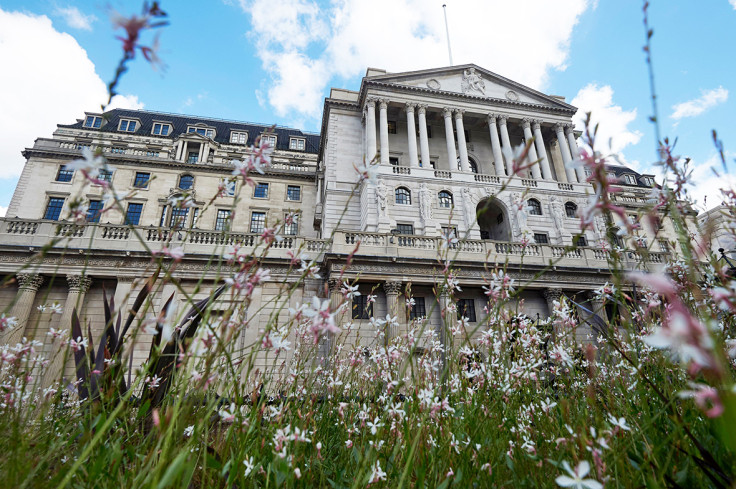Bank of England cuts interest rates by 25 bps to 0.25%, in line with market expectation
UK central bank policymakers voted unanimously to cut headline interest rate following dire post-Brexit data
The Bank of England has decided to cut the UK's benchmark interest rate by 25 basis points (bps) to 0.25%, in response to worsening survey data following the country's decision to leave the European Union.
At the conclusion of its latest Monetary Policy Committee (MPC) meeting on Thursday (4 August), the bank decided to ditch its holding pattern. The benchmark rate had been stable at 0.5% since March 2009, when the global financial crisis was battering the UK.
The move, which was in line with market expectations, was supplemented by an MPC decision to increase the central bank's asset purchase programme to £435bn ($572bn, €514bn).
The committee was unanimous in its decision to cut interest rates, but was split 6-3 in favour of increasing the level of quantitative easing by another £60bn.
It also announced a new Term Funding Scheme (TFS) to reinforce the pass-through of the cut in interest rate and the purchase of up to £10bn in UK corporate bonds.
"All members of the Committee agreed that policy stimulus was warranted at this time, and that Bank Rate should be reduced to 0.25% and be supported by a TFS. Eight members supported the introduction of a corporate bond scheme, and six members supported further purchases of UK government bonds," the MPC said.

Policymakers opined that the cut in the Bank Rate will lower borrowing costs for households and businesses. "However, as interest rates are close to zero, it is likely to be difficult for some banks and building societies to reduce deposit rates much further, which in turn might limit their ability to cut their lending rates."
The need to mitigate this was behind the launch of the TFS "that will provide funding for banks at interest rates close to bank rate".
"This monetary policy action should help reinforce the transmission of the reduction in bank rate to the real economy to ensure that households and firms benefit from the MPC's actions. In addition, the TFS provides participants with a cost-effective source of funding to support additional lending to the real economy, providing insurance against the risk that conditions tighten in bank funding markets," the added.
The pound fell versus a basket of global currencies following the decision. At 12.22pm BST, the British currency was down 1.18% versus the dollar to $1.3168, while the euro rose 0.99% to change hands at £0.8450.
Government and lobby groups welcome the historic cut
Chancellor Philip Hammond welcomed the rate cute. "The vote to leave the EU has created a period of uncertainty, which will be followed by a period of adjustment as the shape of our new relationship with the EU becomes clear and the economy responds to that," he said.
"It's right that monetary policy is used to support the economy through this period of adjustment. That's why I have authorised the governor's request for an increase in asset purchases and a new lending scheme to support the economy, helping ensure that the benefit of low interest rates is passed on by the banks to households and businesses."
The Confederation of British Industry also commended the move. The lobby group's chief economist, Rain Newton-Smith, said: "The combination of a rate cut and more quantitative easing should be a shot in the arm for business and consumer confidence, lowering borrowing costs and keeping liquidity flowing through the economy.
"The Bank's action will help restore confidence in the UK economy and what's now most important to businesses is that the government develops a clear plan and timetable for EU negotiations."
Analysts divided on how successful a rate cut would be
City analysts, fully expecting an interest rate cute, were not necessarily united in their belief that the move will have the kind of results many are expecting.
Ben Brettell, senior economist at Hargreaves Lansdown, said: "Recent survey data has been so bad that anything other than a 25 bps rate cut today would have disappointed markets. In fact, the bank went further than markets anticipated, and as a result sterling immediately fell by more than a cent and a half against both the dollar and the euro.
"Whether these measures are appropriate, only time will tell."
Survey data shows the EU referendum result has caused significant uncertainty, and it seems certain some kind of negative shock is on the way. While the Bank cut the its growth forecast for 2017, down to 0.8% from 2.3% in its May forecasts in its quarterly inflation report, it stopped short of saying the UK was heading for a recession.
"Sentiment is more volatile than activity, so it's possible the magnitude of the shock will be smaller than the survey data implies," Brettell added.
Michelle McGrade, chief investment officer of TD Direct Investing, described the rate cut as a step in the wrong direction if "instilling confidence in the economy and markets" was the central bank's objective.
"We have seen in the major countries, and especially in Japan, that very low and in some cases negative interest rates have not had the desired effect in terms of stimulating economies. We must not forget that the crucial issue weighing on UK confidence is the uncertainty around what leaving the EU means.
"The sooner the government can give us clarity on that, the more chance we have of stimulating confidence and growth. While savers have taken a hit today, investors are likely to benefit. With such low rates on deposit accounts, traditional savers could turn to shares to earn a decent level of return. This in turn drives share, bond and asset prices higher, helping the FTSE to perform well during a period of low interest rates."
Updated with market commentary, industry response at 1pm BST on 4 August 2016.
© Copyright IBTimes 2025. All rights reserved.






















